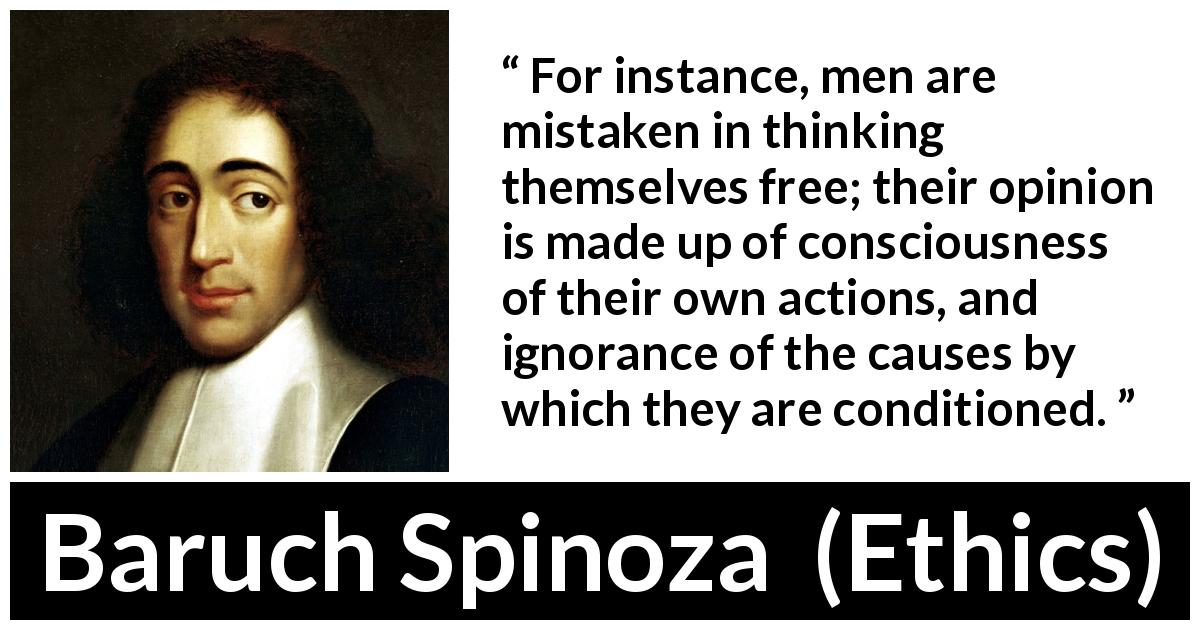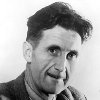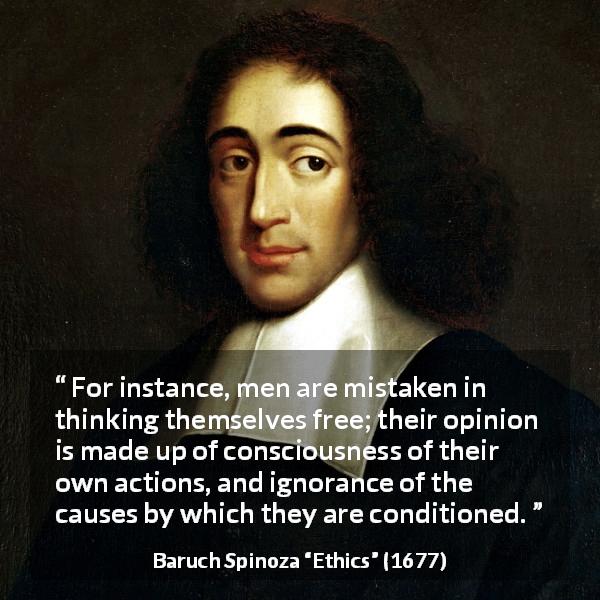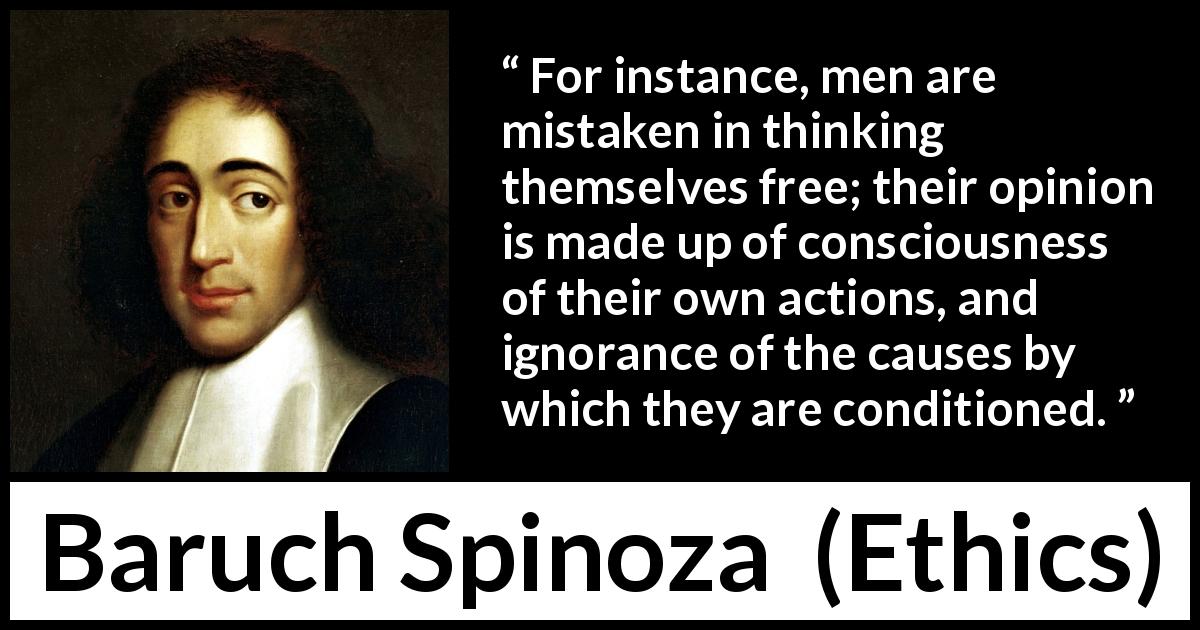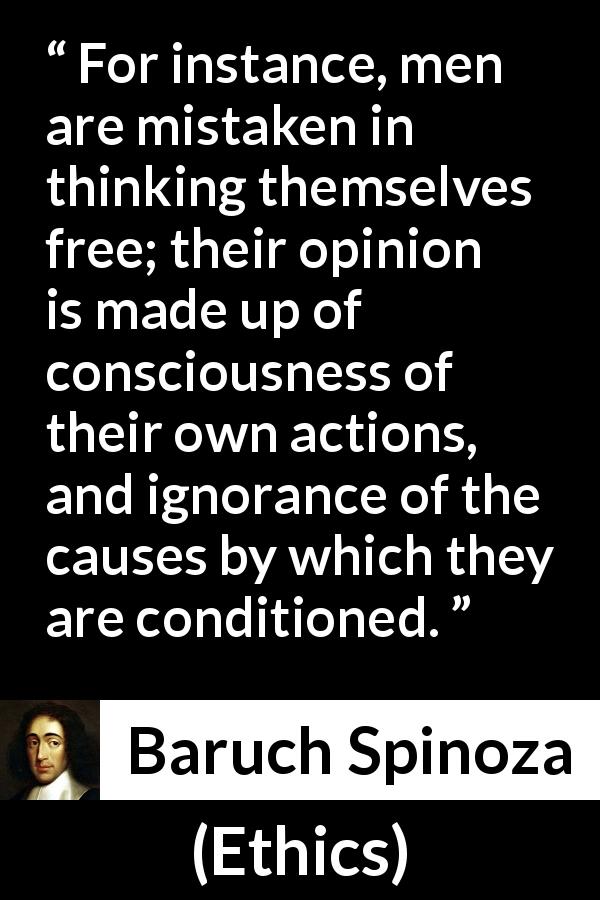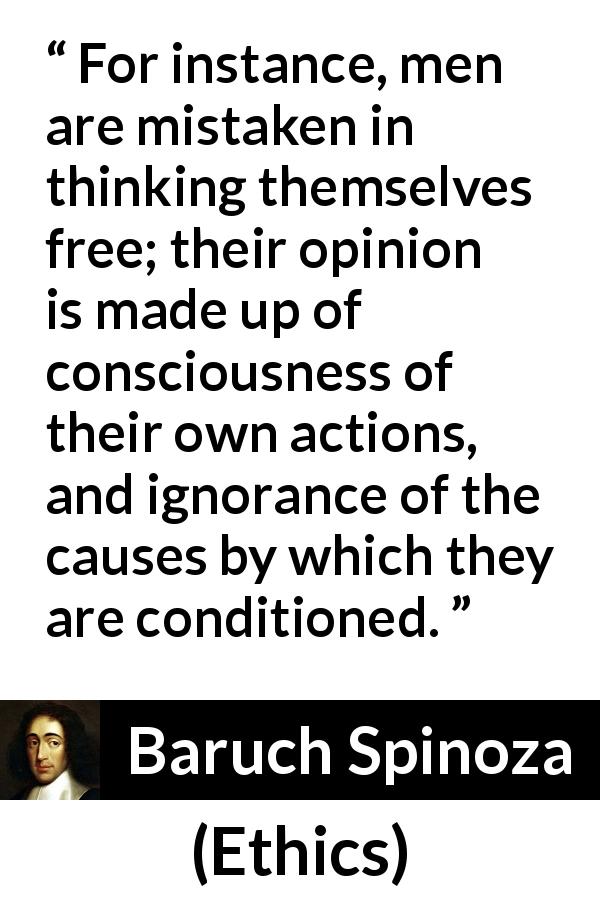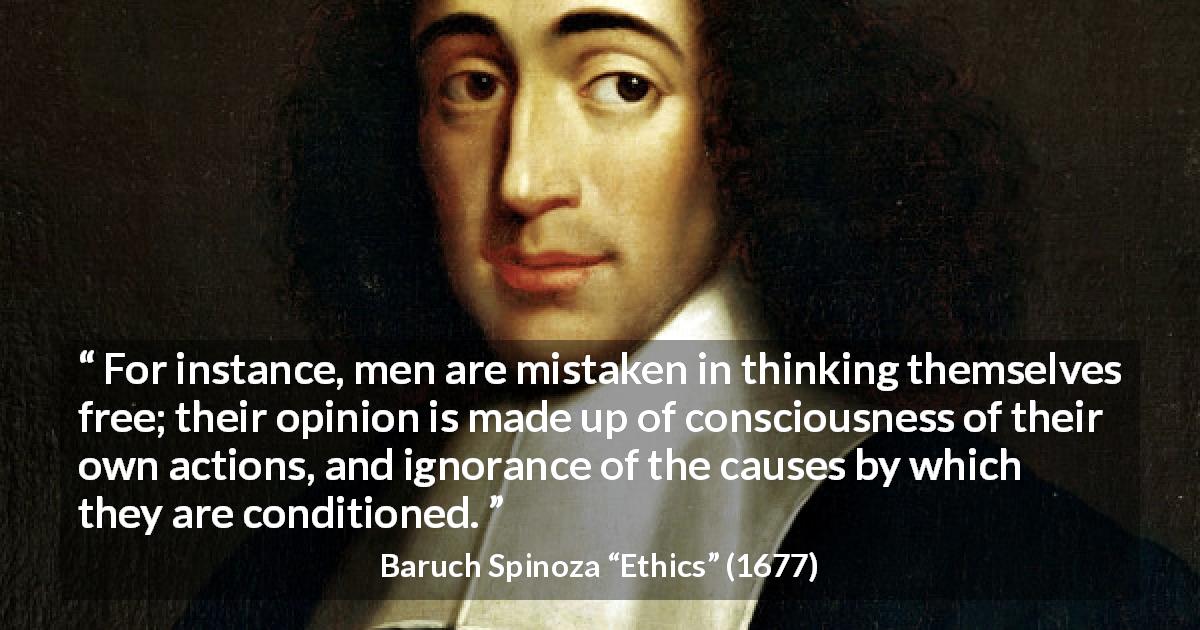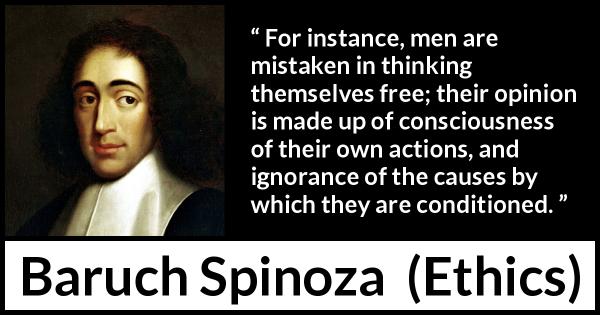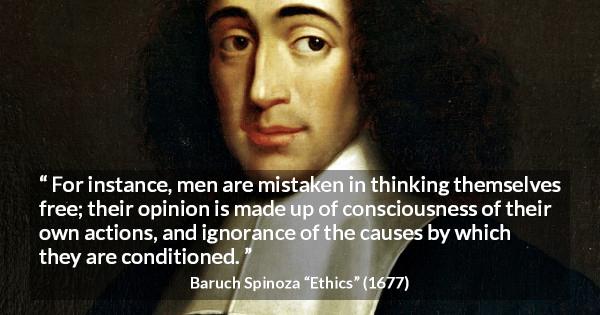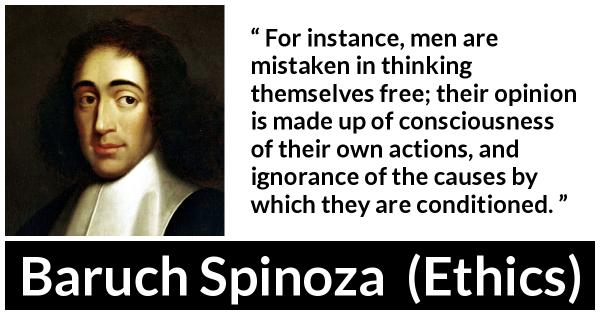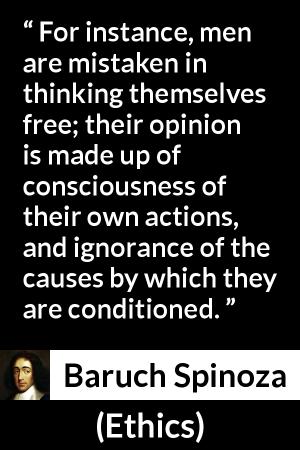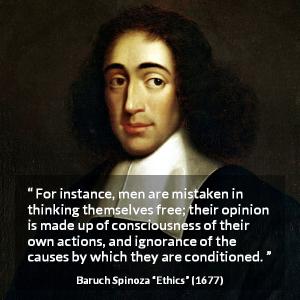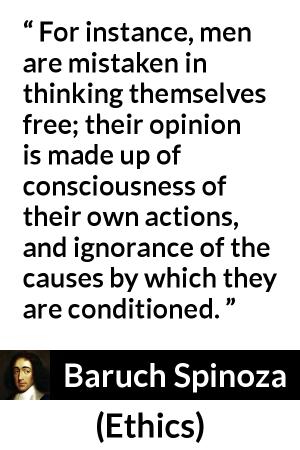“ For instance, men are mistaken in thinking themselves free; their opinion is made up of consciousness of their own actions, and ignorance of the causes by which they are conditioned. ”
Baruch Spinoza, Ethics (1677). copy citation
| Author | Baruch Spinoza |
|---|---|
| Source | Ethics |
| Topic | freedom consciousness conditions |
| Date | 1677 |
| Language | English |
| Reference | |
| Note | Translated by R. H. M. Elwes |
| Weblink | http://www.gutenberg.org/files/3800/3800-h/3800-h.htm |
Context
“; but falsity cannot consist in simple privation (for minds, not bodies, are said to err and to be mistaken), neither can it consist in absolute ignorance, for ignorance and error are not identical; wherefore it consists in the privation of knowledge, which inadequate, fragmentary, or confused ideas involve. Q.E.D.
Note.—In the note to II. XVII. I explained how error consists in the privation of knowledge, but in order to throw more light on the subject I will give an example. For instance, men are mistaken in thinking themselves free; their opinion is made up of consciousness of their own actions, and ignorance of the causes by which they are conditioned. Their idea of freedom, therefore, is simply their ignorance of any cause for their actions. As for their saying that human actions depend on the will, this is a mere phrase without any idea to correspond thereto.” source
Note.—In the note to II. XVII. I explained how error consists in the privation of knowledge, but in order to throw more light on the subject I will give an example. For instance, men are mistaken in thinking themselves free; their opinion is made up of consciousness of their own actions, and ignorance of the causes by which they are conditioned. Their idea of freedom, therefore, is simply their ignorance of any cause for their actions. As for their saying that human actions depend on the will, this is a mere phrase without any idea to correspond thereto.” source
